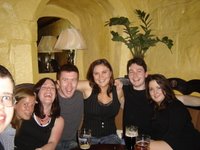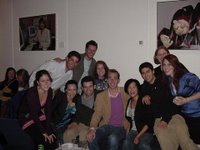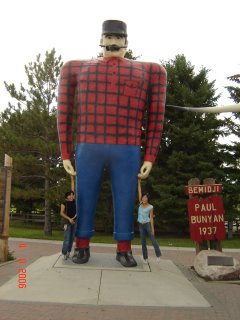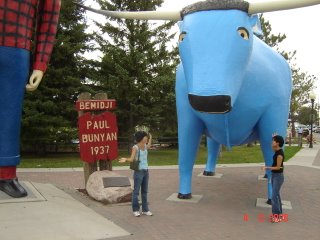Coming to Ireland, I set out to blog my experiences. For being a capitalistic meritocracy like the United States, Ireland does have its quirks that I've been adjusting to since I've arrived.
Irish time. It's not just a newspaper and it's not to the same extent as Italy or South Africa. Classes start at ten past the hour and if you are meeting a group of friends at the pub, expect them to arrive within a ninety minute window. Accordingly, it is smart to know if one person will arrive somewhat on time. Otherwise, I walk around the block a few times. I've had a taxi ride that gave me flashbacks of NYC cabbies and buses that drop me off with a few minutes before my train was to depart. Everything gets done in its own time. That's what the Irish tell me, I tell myself, and hope that Irish time won't fail me.

Food and drink. It doesn't bother me to go shopping more frequently for groceries, though I often wish that my fridge was larger. I continually tell myself that having a dishwasher is ample compensation. However, individual college students had this size fridge in their dorm rooms for one or two people. Not four. My housemates and I make it work, though it's the least ideal part of my townhouse. The Saturday market is fabulous for organic vegetables, hot curries (when I don't feel like cooking a hot lunch), and browsing homemade crafts. If only I could afford to buy more organic products....

Beverages really should have their own paragraph. With hour breaks between many of my lectures, my classmates and I will go have a cup of tea. Or lunch. Multiple times. The wet-cold weather is chilling, though hot tea or a pint does help. The first couple of weeks, my classmates and I were out at College Bar or City Centre for a pint (or more). Unfortunately, work is piling up and I'm discovering that Ireland is an expensive place to live. Pubs are great- cannot not say enough about the atmosphere to sit around and get to know people. (I've also gone out for coffee and dinner, so please don't think I only go drinking. There is no way I could ever outdrink the Irish.)
Having gotten back from my orientation trip in Dublin this past weekend, I've been thinking a lot more about how ingrained the American culture is in me. I need my time to talk with my American friends about arrival and adjustment experiences. We laugh about the cultural differences and slang. Yet I find that it's rather tiring to find out that there's still more slang that I don't know. Sometimes I can understand the general meaning, other times, I am worried that I dont' know and have to ask. Today I learned that calling someone a legend is not comparing him or her to Paul Bunyan or the Beatles. Rather, that person is brilliant (caution, not in the genius sense.) Easy enough. Until I come across the phrase "I'm chuffed." No context there. (It has a positive connotation.)

References to old TV shows go over my head and I only know the American TV shows. The other Mitchells and I were in the live studio audience at the
Ryan Tubridy Show (similar to the Conan O'Brian show). I ended up telling only Derek that I was going to attend since I didn't realize it was a show that others watched. It was a good time- complete with the guest appearance of the Hoff. Yes, I was seen on television in the audience. The show is broadcast on one of the Irish TV networks, RTE.
I definitely miss the familiarity of my life at Kenyon. I miss having someone cook my meals and being able to walk across campus and recognizing the majority of people that I meet. That's not to say that I'm not

having a brilliant time in Galway. It's just that sometimes I wish I knew more people. My classmates are my social network. Reminds me of Kenyon in that sense. However, I have my own place now and have more time to myself. More relaxing in general.
Don't get me wrong. I've found so many of the Irish students and people that I've met to be generous, friendly, and possess a good sense of humor. That sense of humor might be dark or sarcastic, but it is rarely malicious. The idea of buying rounds at pubs is so natural. That is one thing that I wish to improve throughout the year. Buying rounds without being rude or unaware. They don't say much about themselves but are nonetheless curious about others.
It's exciting to know the other Mitchells around Ireland. They will come visit me and I will visit them. Also, it is just good to know others on this island. I do think of Ireland as an island. Probably because I see the ocean every day.
Yes, I have seen Martin Sheen walking along the Concourse on his way to class at NUI Galway. No, I haven't talked with him.
Following Twins baseball isn't the same as being in the States, much less in Minnesota.








